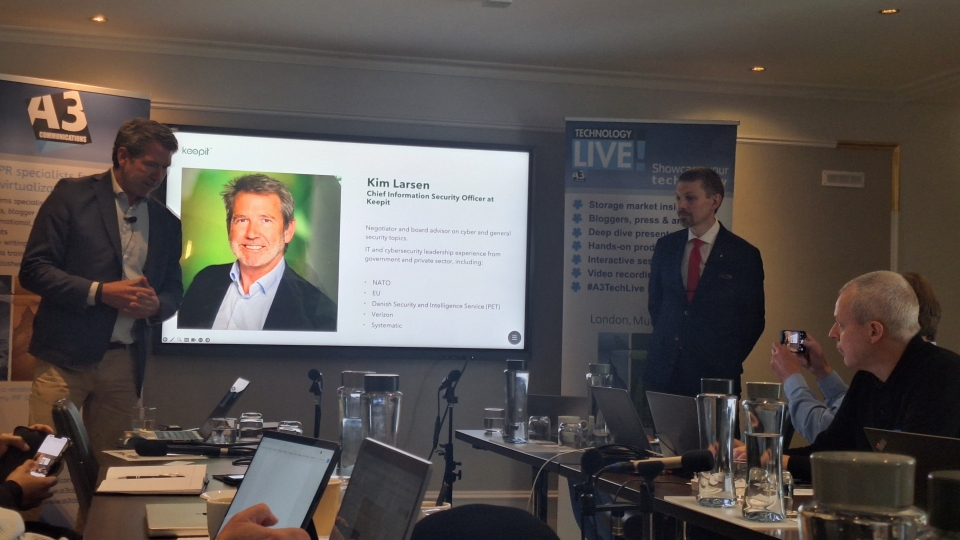
Denmark-based cloud backup vendor Keepit is considering expanding its data centre footprint into France, driven by increasing customer demand, according to CTO Jakob Østergaard.
Speaking to IT Europa at Technology Live in Paris, hosted by A3 Communications, Østergaard (pictured right) discussed the potential of an expansion in the region, although no final decision has been made yet.
“We have customers in France who are currently content with having their data in Frankfurt or Copenhagen," he said.
“However, as our customer base grows, it makes sense to offer localized data centres, possibly influenced by specific French certifications for regulated markets.”
Keepit's market-driven approach to expansion is evident in the firm's recent move into Switzerland and in the UK, which was influenced by Brexit.
“We anticipated the importance of Brexit and established our UK region a year before it officially happened. This foresight allowed us to stay ahead of market demands,” Østergaard explained.
The surge in demand for backup solutions is also driven by new regulatory requirements like the EU's NIS2 Directive.
Østergaard said: “There is a growing market awareness about the necessity of backup solutions. For instance, 90% of Microsoft 365 customers currently have no backup, posing significant legal and compliance issues, especially with the new regulations coming into effect.”
"Everyone used to know that they needed backup. And now people are relearning this. From my perspective, that's what's happening now.”
Expanding into new regions presents challenges, particularly in selecting suitable data centres. Østergaard highlighted, “We always opt for an active-active setup with two sites close enough for jurisdictional consistency but far enough apart to avoid simultaneous risks.”
Despite these challenges, Østergaard remains optimistic about future expansions. “Once we see financial and market sense, we proceed with expansion,” he said.
Keepit currently has data centre regions in seven locations worldwide, including the USA, Canada, Australia, the UK, Germany, Denmark, and Switzerland.


